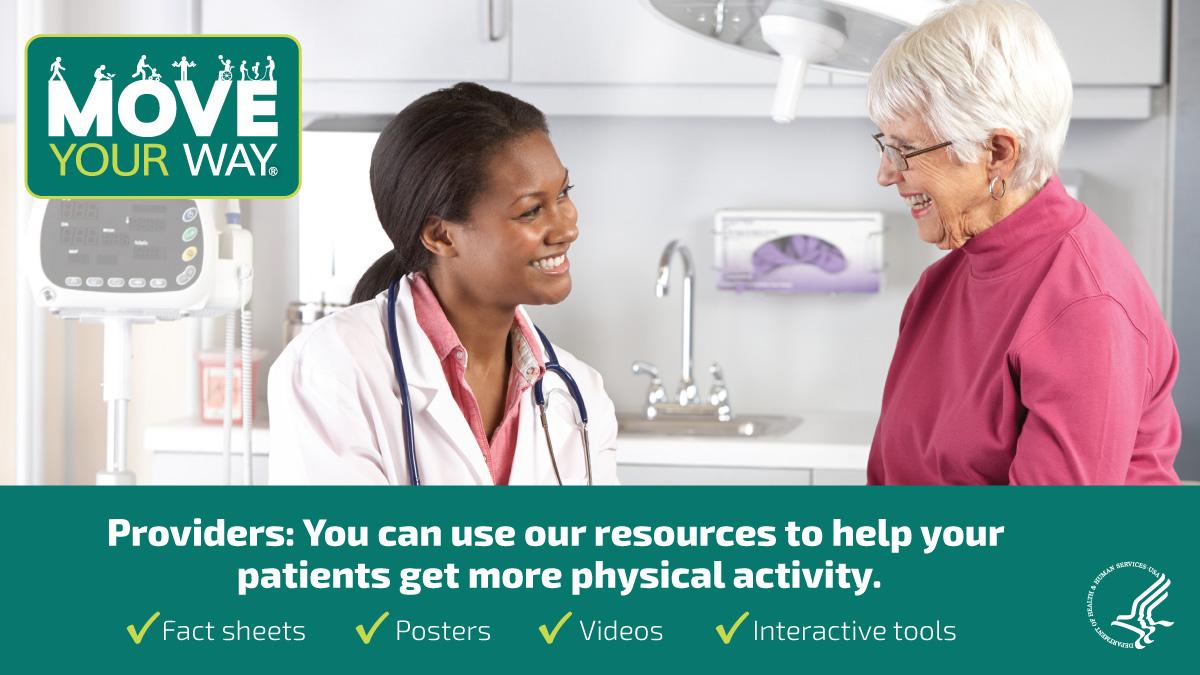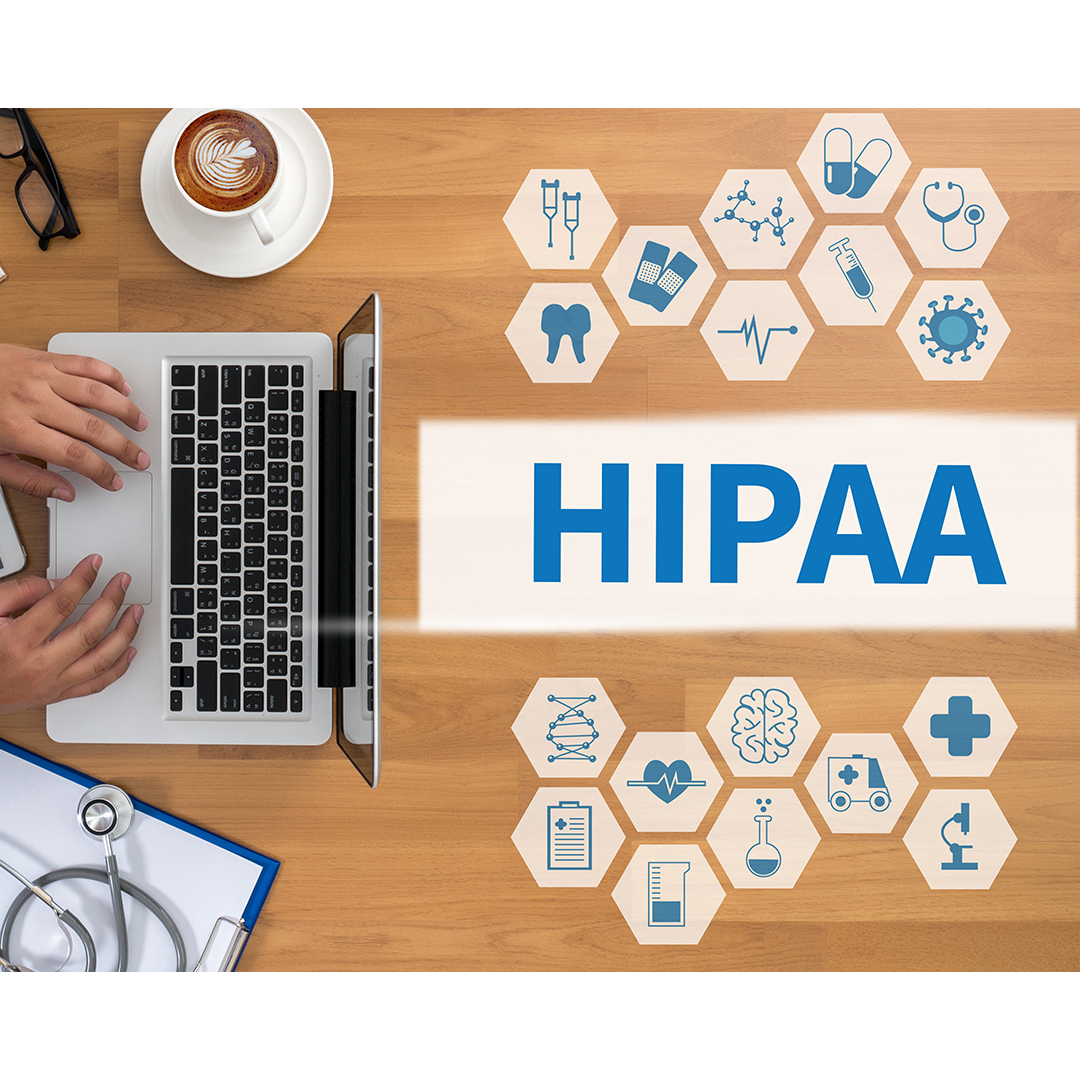In a busy medical practice, daily demands often take precedence over administrative tasks like performance evaluations. However, conducting annual office staff reviews is one of the most valuable investments a practice can make. Regular, structured evaluations strengthen team performance, support staff development, and ultimately enhance the quality of patient care.
Staff Performance Reviews – Are They Necessary?
Nov 26, 2025 11:33:21 AM / by OUM Risk Management Specialist posted in Practice Management
Avoiding Scope-of-Practice Violations
Nov 26, 2025 11:20:33 AM / by OUM Risk Management Specialist posted in Compliance, Practice Management
Scope-of-practice violations are among the most common – and costly – regulatory risks for doctors and medical practices. These occur when:
- A provider performs tasks they are not legally permitted or trained to do.
- Tasks are delegated to staff whose licensure does not authorize those activities.
Scale Your Practice & Maintain Quality Care
Oct 24, 2025 1:22:34 PM / by OUM Risk Management Specialist posted in Compliance, Practice Management
In today’s rapidly evolving healthcare landscape, many physicians are seeking ways to grow their practices without compromising the quality of care. Scaling a medical practice involves more than simply seeing more patients - it requires strategic expansion of operations, staffing, technology, and patient engagement systems. When done correctly, it can increase profitability, improve efficiency, and enhance patient satisfaction. Below are steps you can take to scale your practice.
Maintaining Professional Boundaries with Patients
Sep 10, 2025 5:39:39 PM / by OUM Risk Management Specialist posted in Risk Management, Practice Management
Professional boundaries are the ethical, legal, and relational limits that define the interactions between healthcare professionals and their patients. They protect the therapeutic relationship by ensuring that it remains focused on the patient’s health, safety, and well-being. Maintaining these boundaries is crucial for fostering trust, preserving professional integrity, and avoiding conflicts of interest.
Reducing Staff Turnover at Your Chiropractic Practice
Aug 5, 2025 11:13:25 AM / by OUM Risk Management Specialist posted in Practice Management
Staff turnover places a significant strain on an office's finances and resources. It increases expenses related to recruiting, hiring, and training new employees, along with the cost of covering temporary staffing needs. Productivity often declines as attention is diverted to focus on the hiring and onboarding process. Additionally, turnover can negatively impact staff morale, especially when the remaining employees must take on extra responsibilities to compensate for vacant roles.
Office Staffing: Handling Time Off Requests
Jul 8, 2025 11:01:52 AM / by OUM Risk Management Specialist posted in Practice Management
Managing office staffing and handling time-off requests effectively is key to maintaining smooth operations, avoiding staff burnout, and ensuring good patient care.
Having Difficult Conversations with Patients
Jul 8, 2025 10:14:12 AM / by OUM Risk Management Specialist posted in Practice Management
Having difficult conversations with patients and their family is one of the most challenging yet important responsibilities in healthcare. These conversations can involve topics like delivering bad news, discussing prognosis, setting boundaries, addressing non-compliance, or managing unrealistic expectations.
Here are some steps you can implement to optimize difficult conversations you need to have with your patient.
Compassionate, Inclusive, and Competent Healthcare: Focus on the LGBTQIA+ Community
Jun 6, 2025 11:40:27 AM / by OUM Risk Management Specialist posted in Compliance, Practice Management
While most healthcare providers are compassionate and want to provide optimal care to their patients, implicit biases exist. Healthcare providers may not be aware of implicit biases, which may be subtle and unintentional, that can influence clinical interactions, lead to a lack of trust between the patient and the healthcare provider, and result in healthcare disparities.
Managing Patient Complaints to Optimize Outcomes
Jun 6, 2025 11:39:49 AM / by OUM Risk Management Specialist posted in Practice Management
You strive to provide quality care and good customer service to your patients. But inevitably, you will have a patient or patient’s family member that is not satisfied with the care you (or your staff) provided.
The Impact of Physician Burnout
May 12, 2025 2:41:36 PM / by OUM Risk Management Specialist posted in Practice Management
Physician burnout is a long-term stress reaction characterized by emotional exhaustion, depersonalization (indifference toward or detachment from work), and a decreased sense of personal achievement. Physicians are especially prone to burnout with almost half of physicians reporting at least one symptom of burnout.
Causes and Effects of Burnout
Physician burnout not only negatively affects physicians and their families, but it also puts patients at risk. Evidence suggests that physician burnout worsens the quality of patient care, increases the risk of medical errors, and decreases patient satisfaction.
Strategies for Patient Retention
Apr 14, 2025 12:54:26 PM / by OUM Risk Management Specialist posted in Practice Management
To have a thriving practice, you must have patients. While it is great to get new patients, it is important to focus on retaining established patients, too. If you create loyal patients, they not only return to your office for appointments, but they promote your practice to their friends and family which is great for business.
You Just Received a Negative Online Review… Now What?
Apr 14, 2025 12:51:53 PM / by OUM Risk Management Specialist posted in Practice Management
All healthcare professionals like to receive positive online reviews. It’s a great way to let people know about you and the exceptional care you provide. Which, in turn, can help send new patients your way.
So, Your Chiropractic Practice is Growing? What to Keep in Mind for Patient Selection
Feb 10, 2025 2:23:12 PM / by OUM Risk Management Specialist posted in Practice Management, Claims
Patients are important for chiropractors. They allow the chiropractor to keep a steady stream of new patients and inject meaning into their practice as they help relieve symptoms for individuals in their community. Of course, patients also keep the clinic running profitably and allow the clinic to expand patient services. Retaining patients is important, too, for gauging success metrics like patient satisfaction and referral sources.
Practicing Culturally Competent Healthcare
Feb 6, 2025 1:48:52 PM / by OUM Risk Management Specialist posted in Practice Management
The Need for Fairness in Healthcare
In a perfect world, healthcare access and provision would be fair for all people, regardless of ethnicity, race, religion, gender, socioeconomic status, geographic location, language, age, disability, and other variables. Unfortunately, this is not always the case. To help address disparities in healthcare and improve patient outcomes, here is some guidance for practicing patient-centered and culturally competent healthcare.
Training Your Staff to Optimize Patient Care & Office Efficiency
Aug 13, 2024 10:13:31 AM / by OUM Risk Management Specialist posted in Practice Management
You may have staffed your practice with well-qualified people, but now they need proper training to understand your practice and its culture, their role within your practice, your policies and procedures, patient population, state and federal requirements such as HIPAA and OSHA, and other office practices. (If you need help with hiring, read our blog article, “Hiring the Best Staff for Your Practice”!)
Hiring the Best Staff for Your Practice
Jul 11, 2024 9:38:30 AM / by OUM Risk Management Specialist posted in Practice Management
To provide the best care for your patients and run an office practice, you need help. You need a staff that reflects your values, fits in with your office culture, increases the efficiency of your practice, and helps maintain a positive working environment.
Therefore, it is crucial to hire staff that are well qualified for their respective positions, can work effectively as part of a team, and adapt to the dynamic nature of a chiropractic medical office. They must be able to effectively communicate with patients, families, other members of your healthcare team, other healthcare professionals, and foster relationships with all these various parties. Staff members should be customer service-oriented, dependable, friendly, compassionate, flexible, able to manage conflicts, willing to learn, and deeply committed to patient privacy.
Risk Management for Medical Emergencies in the Office Setting
May 31, 2024 4:44:50 PM / by OUM Risk Management Specialist posted in Risk Management, Practice Management
A patient suffers cardiac arrest while waiting in the exam room. An elderly visitor falls in the waiting room, is complaining of leg pain and is unable to get up. A diabetic staff member passes out from hypoglycemia. These are just a few examples of unexpected medical emergencies that could happen in a medical office.
My Patient is Refusing Necessary Treatment, Now What?
Sep 18, 2023 1:24:59 PM / by OUM Risk Management Specialist posted in Risk Management, Practice Management
Start with Informed Consent
As a practitioner, you use your knowledge, experience, and medical judgment to determine the best course of treatment for your patient. However, adult patients (and those having decision-making authority for others) have the right to choose to follow or refuse to follow your treatment plan. When a patient refuses a necessary treatment, what can practitioners do to protect themselves and their patients?
Retirement Planning: Are You Prepared?
Jul 19, 2023 1:20:49 PM / by OUM Risk Management Specialist posted in Risk Management, Practice Management
If you’re thinking about retirement, it’s prudent to start planning well in advance. If you are a solo practitioner, will you sell or wind down your practice? If you are in a group practice or employed, what are your obligations regarding providing notice of retirement? What are your state licensing board’s requirements regarding retirement? How will you retain your medical and business records? How will you notify your staff and patients of your plan to retire? What do your contracts with health insurers require when you retire from practice? Do you need to purchase professional liability insurance “tail coverage”?
Review all contracts pertaining to your practice and consider seeking the advice of an attorney who specializes in business and/or healthcare law, your professional liability insurance carrier, your state board, and your state association for advice regarding these questions and the many other issues that arise in the retirement process.
Here, we will discuss a few issues related to retirement from a risk management perspective.
National Physical Fitness and Sports Month
May 11, 2023 5:31:43 PM / by OUM Risk Management Specialist posted in Practice Management
Integrative Medicine: Treating the Whole Patient
Mar 8, 2023 4:00:41 PM / by OUM Risk Management Specialist posted in Risk Management, Practice Management
Introduction to Integrative Medicine
Integrative medicine is an approach to wellness that is growing in popularity in the United States. It is patient-centered and combines conventional medicine and complementary medicine to treat the person as a whole. It addresses many factors, including the physical, emotional, social, spiritual, and environmental influences on a person’s health status. Integrative medicine focuses on the broader concepts of health that promote a person’s overall health and future well-being. Reviews and clinical studies have shown positive outcomes for patients and providers who participate in integrative medicine programs.
Benefits of Integrative Medicine
Complementary therapies are not used to replace conventional treatments. They are used in conjunction with conventional medicine to enhance and complement treatment. Complementary therapies include diet therapy, herbal supplements, probiotics and vitamins, biofeedback, hypnotherapy, meditation, yoga, acupuncture, chiropractic, reflexology, and therapeutic massage. Integrative medicine practitioners include professionals of many disciplines, including medical doctors, nurse practitioners, doctors of osteopathic medicine, naturopaths, chiropractors, mental health professionals, mind-body specialists, massage therapists, and acupuncturists.
Many patients can benefit from integrative medicine, especially patients with chronic or complex medical conditions such as cancer, chronic pain, depression, diabetes, hypertension, fibromyalgia, and many other conditions. Complementary therapies may help people living with such conditions to achieve better appetite, improved cognitive functioning, pain relief, reduced anxiety, and improved sleep.
Risks and Challenges Related to Integrative Medicine
While there are many benefits to integrative medicine, there are some risks to be aware of. Integrative medicine often involves care from multiple practitioners. This may involve multiple appointments for the patient to keep. Providers may disagree on the plan of care since complementary therapies and traditional Western medicine have different philosophies. Some complementary therapies have side effects or interact negatively with conventional treatments.
As a medical provider, it’s important for you to be aware of the benefits and risks of any complementary or conventional therapies a patient is receiving. Complementary therapies should only be used if proven to be effective, safe, and appropriate for a person’s individual health status. Open communication with your patients and their providers is crucial to optimize patient outcomes and maintain a good physician-patient relationship.
Get More Resources and Information to Stay Educated
It is critical to educate yourself on the various integrative medicine options. The National Center for Complementary and Integrative Health website has resources for healthcare providers that includes an A-Z listing of various health products and practices, including information about the safety and effectiveness of the products and practices. It also includes evidence-based resources, such as research results and clinical practice guidelines, which will help prepare you to discuss complementary health approaches with your patients.
If you are not insured with OUM, fill out our online form to get a no-obligation quote.
“OUM” and “OUM Chiropractor Program” do not refer to a legal entity or insurance company but to a program or symbol of a program underwritten, insured, and administered by ProAssurance. The information contained on the OUM Chiropractor Blog does not establish a standard of care, nor does it constitute legal advice. The information is for general informational purposes only. We encourage all blog visitors to consult with their personal attorneys for legal advice, as specific legal requirements may vary from state to state. Links or references to organizations, websites, or other information is for reference use only and do not constitute the rendering of legal, financial, or other professional advice or recommendations. All information contained on the blog is subject to change.
The Harmful Impact of Bullying in the Workplace
Feb 8, 2023 9:38:40 AM / by OUM Risk Management Specialist posted in Practice Management
What Workplace Bullying Looks Like
Bullying is harmful, targeted behavior that may be directed to one person, or a group of people. It might be spiteful, offensive, mocking, or intimidating. Bullying can range from being overtly obvious, such as yelling, to subtle, such as using condescending language. It is a repeated behavior that manifests from a real or perceived power imbalance and is often intended to control, embarrass, undermine, threaten, or otherwise harm the targeted person or group.
4 Risk Management Strategies to Avoid the Most Common Chiropractic Malpractice Claims
Jan 12, 2023 2:29:45 PM / by OUM Risk Management Specialist posted in Risk Management, Practice Management
Understanding What Leads to Common Malpractice Claims
The most common allegations in chiropractic malpractice claims are related to these three things:
Cultural Awareness and Competence in Healthcare
Nov 8, 2022 12:54:33 PM / by OUM Risk Management Specialist posted in Risk Management, Practice Management
While most healthcare providers are compassionate and want to provide optimal care to their patients, everyone has biases and knowledge gaps that may hinder the provision of quality healthcare. These biases and knowledge gaps can lead to:
- Barriers to care
- Miscommunications
- Misdiagnosis
- Lack of trust
Bulletproof Your Practice with HIPAA Safe Harbor (PART 2)
Oct 11, 2022 3:56:29 PM / by OUM Risk Management Specialist posted in Compliance, Practice Management
If you missed Part 1 of this article, read it here!
Bulletproof Your Practice with HIPAA Safe Harbor (PART 1)
Sep 13, 2022 2:23:31 PM / by OUM Risk Management Specialist posted in Compliance, Practice Management
Occasionally, there is good news about compliance and risk. Good news came to every licensed healthcare practitioner in the nation on January 5, 2021, when the HITECH Act was amended with the new HIPAA Safe Harbor Law (HR 7898). This change created safe harbors under the law, but only if acted upon by the healthcare professional to protect themselves and their practice.
Handling Patient Refunds the Right Way
Sep 13, 2022 11:36:00 AM / by OUM Risk Management Specialist posted in Risk Management, Practice Management
Finding yourself in a situation where a patient is unhappy with their treatment and asking for a refund, what should be your response? For example, you may feel that your work is satisfactory, and you are unwilling to provide a refund to the patient considering all the time you spent on their care. Or you may be seeking a quick resolution to the situation. In this article, we’ll take a closer look at how to handle patient refunds.
The Impact of Empathy in Healthcare
Aug 22, 2022 5:57:54 PM / by OUM Risk Management Specialist posted in Practice Management
What is the Role of Empathy in Healthcare?
Empathy is the ability to understand and share the feelings of another. It combines intellectual perspective with emotional understanding. Empathy is a skill that has not been historically emphasized in medical schools. However, it plays a crucial role in healthcare.
How to Grow Your Practice and Attract More Patients
Jun 2, 2021 9:02:21 AM / by Peter Hinz, DC posted in Practice Management
If you’re ready to grow your practice, you may need to make strategic changes in how you run the business side of your clinic. Chiropractors who are willing to put in the effort can create a practice that’s more attractive to new patients. Consider taking these steps:
Advertise Your Clinic in the Right Places
Advertising may spread the word about your practice to potential patients within the community. Of course, you have to make sure you’re advertising in the right places--not every outlet is visible to patients.
Consider asking existing patients how they found your clinic. With that information, you may find some new places to advertise or increase any advertising you’re already doing. Survey incoming patients to see how well your marketing efforts are doing.
Ask for Referrals
Often referrals are among the best sources for new patients. Let your current patients know you’re looking for referrals and welcome recommendations from existing patients. They can tell their friends and family about their experiences with your practice and hopefully find new patients for you.
Sometimes, patients aren’t aware that referrals are important to you. Adding a short and simple message such as, “We love referrals!” to your business cards, e-newsletter, social media or website may help you send the message and find new patients.
Partner with Other Healthcare Professionals
Another great way to get referrals is through other healthcare professionals. Consider teaming up with physical therapists or medical practitioners who may have patients suffering from back pain and other common issues chiropractic care may help with. These professionals may appreciate having a qualified professional as part of their network.
Improve Productivity
Streamlining your practice may provide you with more room in your schedule, mental bandwidth to work in and more resources to devote to each appointment. Becoming more productive can create new possibilities for your clinic. Here are a few ideas:
The Key to Success and a Thriving Business Revealed
Jun 2, 2021 9:02:07 AM / by Vincent Justino, DC posted in Practice Management
Think for a minute about planning your dream vacation. Do you picture relaxing on a white, sandy beach with calm, clear blue water, a gentle breeze, the smell of salt water and the perfect sunset? Will it be Hawaii, Tahiti, Bali, the Mediterranean or the Caribbean? After selecting the location, now you need to book a hotel or vacation rental property. If you google hotels in Hawaii, hundreds appear. Do you go with the first one on the list? Of course not! You read all the reviews and ratings to make an informed decision.
A hotel can make or break your vacation. If the room is unclean, the amenities are lacking, the location isn’t ideal and the staff is unfriendly, your dream vacation won’t be a dream at all; it’ll be a nightmare! That is why recommendations, reviews and ratings are critical. People who have stayed at the hotel can tell you its pros and cons. In the same way, recommendations are essential to finding the best products and services.
How many times have you asked friends for recommendations on restaurants, coffee shops, contractors, mechanics, etc.? Your friends’ recommendations and firsthand experiences are more valuable than choosing the first car repair shop you see when you’re driving down the street.
Whether you’re looking for the best office equipment to purchase, the most qualified employees to staff your office or where to obtain your next continuing education credits, you look to recommendations from colleagues, industry leaders and chiropractic associations. Recommendations from these respected individuals and organizations are far more trustworthy than simply taking the word of any company that provides products or services to chiropractors. These industry experts understand chiropractic and have the same appreciation for it as you do. Recommendations are the key to helping your business thrive and ultimately lead you to success.
Being endorsed and recommended by chiropractic associations is a great honor and privilege. It’s a decision that is made after careful planning by the association, and extensive research has been conducted on the company, its products, services, what it stands for and how it actively supports the chiropractic community. An endorsement demonstrates the reliability, trust and confidence the association has in a company or program.
Only one malpractice insurance program is endorsed by and holds strategic relationships with several state chiropractic associations. OUM Chiropractor Program is privileged to hold that great honor!
We understand the challenges you face today and are working diligently to help protect you. We have your best interests at heart and have designed a policy to thoroughly help protect your practice. We are continuously offering additional services and coverages to make sure your business practice needs are met and you’re protected from broader areas of risk. We also offer one of the largest online libraries of chiropractic-specific risk management resources and confidential risk management consultation.
The protection of your reputation and practice is crucial. Our defense counsel collectively have over 1,000 years of experience defending chiropractors. With this level of expertise, you can rest assured that we will boldly protect your reputation and practice.
These chiropractic associations recognize that we offer quality products, outstanding service, dedication to the chiropractic community, and unmatched value, so they offer their full support to us.
Supporting OUM—a program whose goal is to help protect chiropractors–means supporting a program that champions for you and your chosen profession.
If you aren’t currently insured with OUM, take a moment to reevaluate your decision. Fill out our online form to get a no-obligation quote.
Proof that Malpractice Insurance is Essential to Your Success
Jun 2, 2021 9:01:53 AM / by OUM Risk Management Specialist posted in Practice Management, Coverage
You’re a very busy chiropractor. With so much to do in a limited amount of time, you may only think about malpractice insurance once a year—at your renewal. You may even say to yourself, “I provide the best possible care to my patients and my records are impeccable. I’m not going to get sued, so why do I have to pay for malpractice insurance?”
You can practice the best of care, follow every protocol and keep meticulous records, but that still won’t prevent a claim being filed against you. Yes, all those measures may reduce your risk, but ultimately, it’s out of your control and in the hands of your patient. Simply put, claims are filed every day; some are legitimate and others are frivolous. You shouldn’t live in fear of being sued, but you also shouldn’t ignore the fact that it’s a real possibility.
You may believe that if you’re uninsured or “go bare,” you’re less of a target of being sued. You may even think that when your patient’s attorney finds out you don’t have malpractice insurance, he/she will drop the case because there’s less potential for substantial financial gain if the case is won. While this may happen in very rare instances, the fact is that the attorney can still go after your personal assets, livelihood and reputation.
Another factor to consider is that a malpractice claim can be filed against you after you retire. Imagine if you were traveling the world and then came home to find out that you were being sued by a patient you treated before your long-awaited retirement. Everything you worked so long and hard for and all the finances you saved to cover your expenses during retirement could be in jeopardy. However, if you had a claims-made policy while you were practicing and purchased tail coverage after the policy was terminated, but the incident happened during the time the policy was active, the policy may protect you against that claim.
As you can see, a patient can file a malpractice claim against you whether or not you carry malpractice insurance. It doesn’t matter whether you are an actively practicing chiropractor or retired—the threat of a lawsuit is still a concern. This can seem daunting, but there’s a simple solution that can give you peace of mind–a solution that’s not only necessary, but essential to the success of your practice. It’s to continuously carry malpractice insurance while you’re actively practicing and obtain tail coverage when you retire. With malpractice insurance, you can rest assured that you have a team of professionals helping protect you and your practice should a claim arise.
Don’t let one lawsuit take away the practice, reputation and lifestyle you worked tirelessly to build. The price of a malpractice policy is minimal compared to the financial loss a lawsuit can bring. Ask yourself this question, “Can I afford to be uninsured?”
If you don’t have malpractice insurance with OUM, now is the time to obtain coverage. Our team of knowledgeable professionals is readily available and happy to help you. At OUM, we’re with you. Every step of the way.
Contact us today for coverage information. Fill out our online form to get a no-obligation quote.


















.jpeg)











